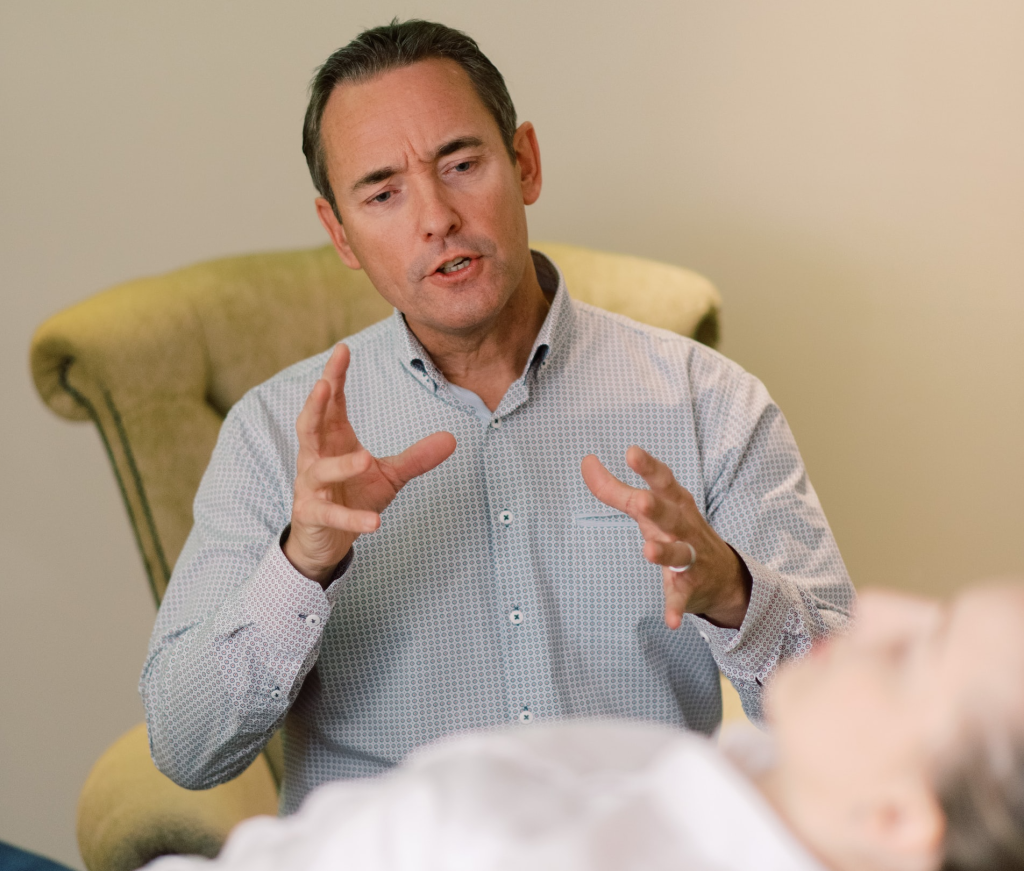What if I told you, anxiety was an epidemic. In fact, according to NAMI, “Anxiety disorders are the most common mental health concern in the United States. Over 40 million adults in the U.S. (19.1%) have an anxiety disorder.” Most people are treated with Cognitive Behavioral Therapy (CBT). However, there are many other types of effective psychotherapies for patients suffering from anxiety. Check out this blog post which details some exciting alternatives. [1]
One popular alternative therapy is hypnosis. Since the 1700’s, hypnotists have used the art of suggestion to trigger a shift in consciousness that enables people to radically alter their thoughts, behaviors, and emotions. [2]
How does it work? Hypnotists guide their patients into a state of deep relaxation using tools like guided imagery and progressive muscle relaxation. Once they are relaxed, it becomes easier to reprogram their patients’ minds and help them reduce anxiety.
Another unsung treatment for anxiety is Gestalt Therapy. How does it work? It seeks to increase a person’s awareness, freedom, and self-direction. The goal is for patients to achieve personal growth via becoming more oriented to the present, helping them develop new perspectives and healthier ways of interfacing with the world. [3]
Integral to Gestalt Therapy is the notion that, “every individual is a blend of the mind, emotions, body, and soul with unique experiences and realities.” And, all these parts must be taken into account.
This next therapy is one most people are sure to love: Music Therapy. How does it work? Simple! All you need is to, “listen [to music], sing, play an instrument, or compose a piece of music.” Anyone at any level of skill can participate and benefit. [4]
What benefits can you expect from a music therapy session? There are many! They include: release of repressed emotions, reduced feelings of isolation, catharsis via self expression, and deep relaxation.

Another really useful treatment is Narrative Therapy. It’s based on the idea we all have multiple stories (narratives) we naturally create over the course of our lives. Working with a therapist, individuals seek to understand what stories they are telling/experiencing and how to alter them for the better. [5]
This therapy is really effective because it positions the client as the expert, does not blame the client for their story/circumstances, and emphasizes respect for the unique journey each person is on.
“Through narrative therapy, people can identify alternative stories, widen people’s views of self, challenge old and unhealthy beliefs, and open their minds to new ways of living that reflect a more accurate and healthy story.”

Last, but (certainly) not least is Adventure Therapy. In a nutshell, it takes individuals out of their normal environments and places them in nature helping them achieve a challenging, yet fun transformative experience that reshapes them on many levels including: the physical, emotional, behavioral and cognitive. [6]
Run by mental health professionals, adventures can range from rock climbing to sailing to camping. The idea is that the individual can gain insight about themselves and a boost in self-confidence they would normally not be able to receive in a traditional clinical setting. In summary, anxiety is a very common problem. Fortunately, there are many effective psychotherapies. And, not just Cognitive Behavioral Therapy (CBT). Four therapies I particularly enjoyed learning about include: Hypnosis, Gestalt, Narrative, and Adventure Therapy.
~ Timothy Salisbury

Timothy Salisbury is a freelance writer. In his spare time, he enjoys blogging and making electronic and hip hop music. He has personal experience with anxiety and brings his exuberance for mental health to the Breaking Taboo team.
Resources
https://www.nami.org/About-Mental-Illness/Treatments/Psychotherapy [1]
https://my.clevelandclinic.org/health/treatments/22676-hypnosis [2]
https://www.webmd.com/mental-health/what-is-gestalt-therapy [3]
https://my.clevelandclinic.org/health/treatments/8817-music-therapy [4]
https://www.verywellmind.com/narrative-therapy-4172956 [5]
https://www.verywellmind.com/adventure-therapy-definition-types-techniques-and-efficacy-5270
553 [6]

